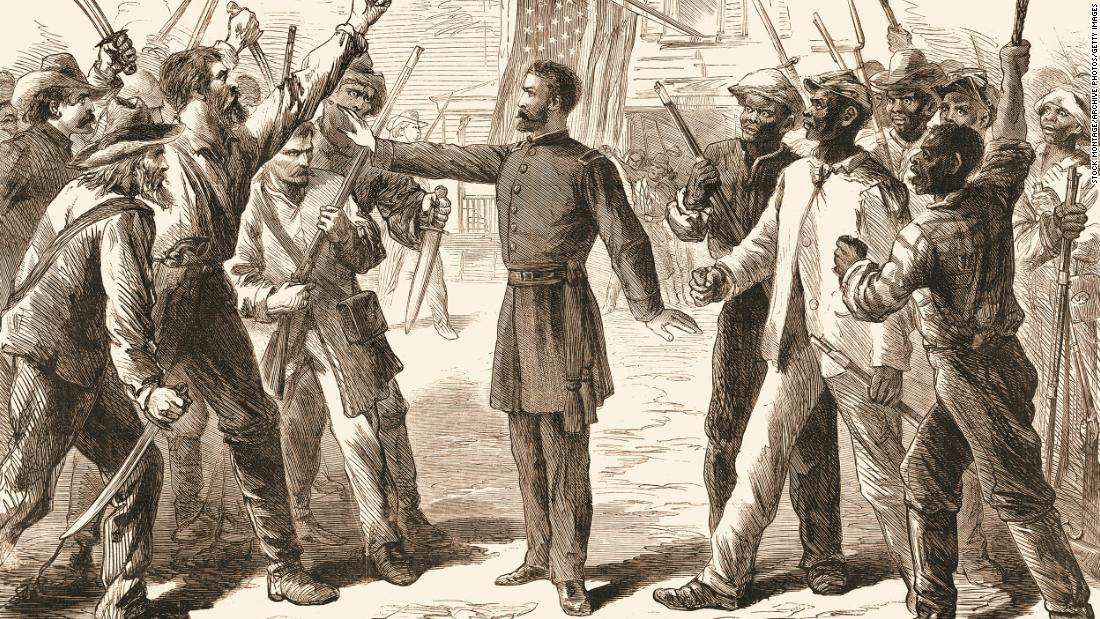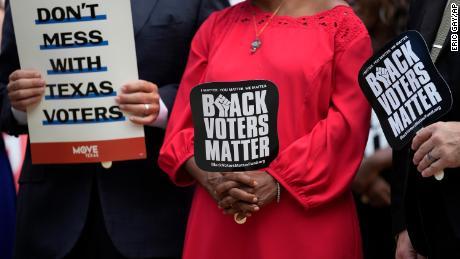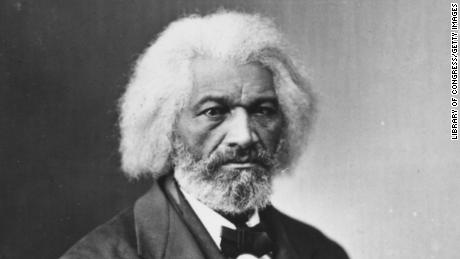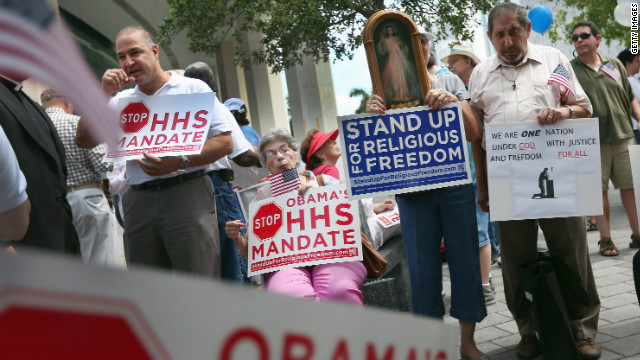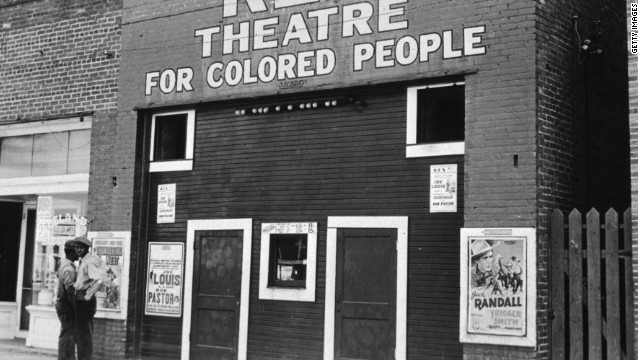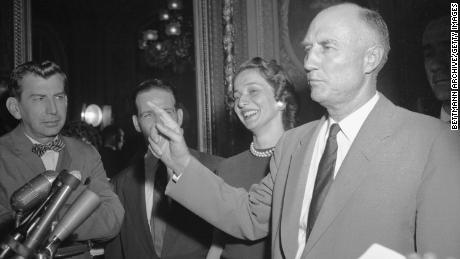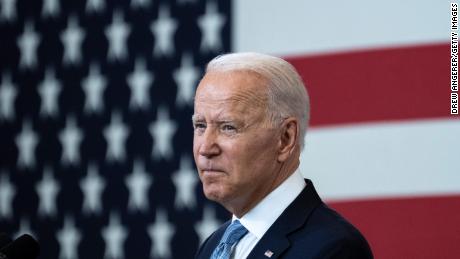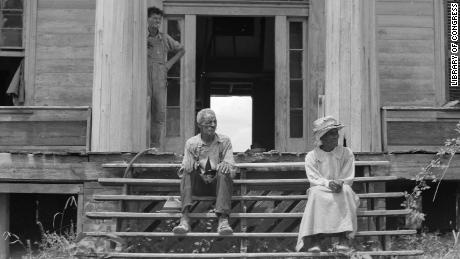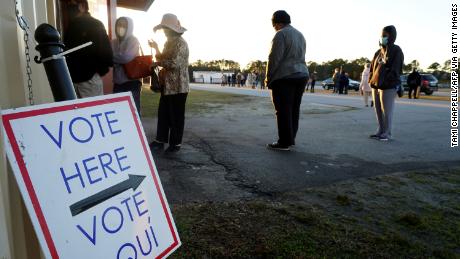Democrats are on the verge of repeating a voting rights blunder that once made the rise of Jim Crow possible
There’s the hapless victim who can’t flee from the monster without falling, the stubborn homeowner who won’t move out of a haunted house, and my favorite: the person who walks toward, not away, from a sinister noise at night while asking, “Hello, is anyone there?”
As I watch some Democrats handle the voting rights issue, I’m seeing a replay of a 19th-century political horror story. It ended with Black voters losing faith in the leaders who were supposed to protect them.
President Biden has called voting rights “the single most important” issue and described a wave of voter restriction bills recently passed by Republican legislatures across the US as “Jim Crow on steroids.”
But for anyone who knows this country’s shameful voting rights history, Biden is following a script that once doomed Black voters and made the rise of Jim Crow possible.
Biden and Democratic leaders who prioritize infrastructure in part to broaden their appeal to reluctant White supporters are making the same mistake White political allies of Black voters made in the late 19th century. That’s when the more progressive American political party of that era — the Republican Party — abandoned Black voters to focus on an economic agenda that emphasized infrastructure and uniting a country that was bitterly divided by race.
That blunder gave us a century of Jim Crow segregation, reduced the Republican Party to a “dying institution” ‘in the South and forced countless Black Americans to confront an uncomfortable truth that many are now facing again:
Our White political allies are rarely willing to match the intensity and cunning of our political opponents.
When chickens ask foxes for help
But there are two lessons today’s Democratic leaders can learn from the mistakes their White counterparts made in the late 19th century:
Economic appeals to White voters driven by racial resentment have limited value. And when you refuse to go all out to protect your most loyal voters, the results can be disastrous.
These aren’t abstract lessons for me. I am a Black voter in Georgia, the epicenter of the new voting rights struggle.
“Would you decline to support a For the Chickens Act solely because the foxes refused to sign on?”
Why some White voters won’t care if you build them a bridge
A Black voter who voted Republican in the late 19th-century South could have related to some of Pitts’ sarcasm.
Black voters in the South were then the most loyal supporters of the Republican Party. The Republicans were the party of Abraham Lincoln, the “Great Emancipator,” and the driving force behind Reconstruction, which lasted roughly from 1865 to 1877. It was the nation’s first genuine attempt to build a multiracial democracy.
A central part of Republicans’ economic message to reluctant White voters was infrastructure: They vowed to rebuild the roads, railways and ports throughout the South.
“They said we’re going to give you economic opportunity,” says White, a professor of American history at Stanford University. “We’re going to build an economic infrastructure you can use. You are going to be able to increase your standard of living. And that’s why you’re going to join the Republican Party.”
White resistance to Black voting rights ground down the will of many Republican leaders. Black political power was crushed by a combination of White terrorism, a wave of voter suppression laws and an indifferent Supreme Court that turned a blind eye to injustice.
What followed was a century of Jim Crow segregation throughout the South that only ended with the rise of the civil rights movement in the mid-1960s. That’s when the Democratic Party began attracting massive numbers of Black voters because of its support for civil rights.
The reasons why Reconstruction ended are complicated. But one lesson contemporary Democratic leaders should take from that era is simple: An economic appeal to White voters consumed by racial grievances can only go so far.
White, the historian, says Democratic leaders touting the crossover appeal of the infrastructure bill “sound like moderate Republicans during Reconstruction.”
“That’s why I think the infrastructure argument is ridiculous, because in the South they were more than willing to hurt themselves if in fact they could hurt Black people more,” White says.
That impulse among some White voters survives today.
Or consider the impact of Biden dispatching stimulus checks to White voters.
The lesson: Building a new road won’t build a new bridge to reluctant White voters who despise Blacks.
Both parties have taken Black voters for granted
The White political allies of Black voters made another big mistake that Democrats may be making now.
They’re forgetting to “Dance With the One That Brought You.”
That’s the title of a song by country music star Shania Twain. The title also reflects a popular sports expression which advises coaches to stick with the players that helped them win.
As White resistance to Reconstruction mounted, though, Republican Party leaders shifted their emphasis from racial equality to big business.
Many Black supporters of the Republican Party felt betrayed. They were the backbone of the GOP in the South but watched Republican leaders do nothing as Black Southerners were being slaughtered while trying to vote.
Henry Adams, an ex-slave who fought for the Union in the Civil War, once told congressional investigators in 1880: “The whole South — every State in the South — had got into the hands of the very men that held us slaves.”
When a political party allows its political opponents to restrict access to the vote, the impact can last for multiple generations. That happened in the Jim Crow South. The US didn’t become a genuine democracy until the passage of the 1965 Voting Rights Act.
Voting rights advocates warn that some version of a Jim Crow 2.0 could repeat itself today — minus the raw violence but with an array of new tactics that restrict voting by Black Americans.
Nse Ufot, a voting rights advocate in Georgia, said that if Democratic leaders can’t replicate the staggering turnout from last November’s presidential election, then “We’re f—ed.”
She used another f-word when she talked about Biden’s recent speech on voting rights.
“When I think about the f-word that cannot be said on television, I didn’t think it was the filibuster,” she told me.
Ufot says she and other Black voters have often felt that the Democratic Party takes their vote for granted. Many now also face the dilemma Black voters faced in the late 19th century South — the alternative is worse. They can’t envision voting for today’s Republican Party, which they view as dominated by White supremacists.
Still, some Black voters could make a third choice that should frighten Democrats: to not vote at all.
Ufot says if the voting rights bill fails, many Black voters in swing states like Georgia may wonder if standing in long lines and taking time off for work to navigate a thicket of voting restrictions is worth it.
“We run the risk of people withdrawing from the process because the cost of participation is too high and they don’t feel like any party represents their interests and will fight for their agenda and priorities,” she says.
The potential death spiral facing the Democratic Party
Black voters won’t be the only ones hurt if Democratic leaders don’t go all out to protect voting rights. The party itself could suffer from a modern version of the death spiral that doomed Republicans in the Jim Crow South.
He says the country is facing a ‘turning point” in the voting rights battle that will determine whether its democracy “grows more inclusive or exclusionary.” He writes that Republican voter restrictions “amount to stacking sandbags against a rising tide of demographic change” and that millennials and Gen Zers represent the most racially diverse generation in American history.
If Republicans eventually impose red state voting rules on blue states, Democrats may not be able to pass national voting rights rules “for another 50 years,” said one Democratic senator quoted in Brownstein’s essay.
“There are entirely too many Democratic senators and establishment folks who do not see the existential threat to their own jobs if these voter suppression laws are allowed to stand,” she said. “They think they can still convince that middle-of-the-road White person that left the party during the Reagan years… They don’t understand that the base of their party is these Black and brown people who turn out for them. They don’t understand that they cannot win if they do not have overwhelming turnout from Black and brown communities.”
Other voting rights advocates are less pessimistic. They say that voter suppression laws aimed at Black voters can sometimes backfire.
“Black people have a history — when you make us mad, we turn out,” says Timothy McDonald, an Atlanta pastor who founded the African American Ministers Leadership Council, the group which created the “Souls to the Polls” get-out-the-vote movement among Black churches nationwide.
McDonald says it’s time to do away with the filibuster if it’s used to stop a new voting rights bill. But he also supports the Biden administration’s focus on passing what could possibly be two major infrastructure bills. New construction offers tangible signs of progress that could even cause some White, conservative voters to switch their votes to Democrats, he says.
“Even Bubba might say, ‘I don’t like Democrats,’ but that’s a good thing there,” says, McDonald, referring to infrastructure improvements such as new roads and bridges. “When he goes into the voting booth, he’s not going to tell his buddies who he’s voting for but don’t be surprised.”
“White voters are never asked to ‘out-organize vote suppression,” he wrote.
Why the time is never ‘right’ for a voting rights bill
As I hear Democratic leaders rationalize why now is the wrong time to get rid of the filibuster or push aggressively for voting rights, a question comes to my mind:
When did White political allies of Black people ever say the time was “right” for us to demand our equal rights?
The time wasn’t right to reclaim Black voting rights in the South until Americans were horrified by images of White state troopers beating marchers in Selma in 1965.
The time wasn’t right to press for police reforms until Americans were horrified by the video of George Floyd being murdered on camera in 2020.
Politics, it’s been said, is the art of the possible. But determined political leaders can often make things happen if they’re passionate enough.
The Democratic Party used to know this.
“You may be right,” Johnson said. “But if that’s the price I’ve gotta pay, I’m going to gladly do it.”
When it seemed like the passage of Obamacare was doomed, Democratic House Speaker Nancy Pelosi told a nervous Democratic leader who wanted to pursue a less ambitious health plan focused on children that she wasn’t going to settle for “kiddie-care.”
There are some issues that are so fundamental to a party’s identity and survival that there is no middle ground, no way to finesse a hard choice.
Black voters like Henry Adams, the courageous soldier who tried to organize Black voters in the South, had that attitude. But their White political allies took their vote for granted and treated them, in the words of Frederick Douglass, like “field hands.”
If the Biden administration doesn’t pass a new voting rights bill after Black voters help give them the White House and control of Congress, the sense of jubilation I witnessed firsthand in Georgia will evaporate.
And if more White Americans continue to regard voting as a privilege rather than a fundamental right, more Black voters will ask Democratic leaders a variation of a question that was first posed by their ancestors in the Jim Crow South:
What’s the use of building a new bridge or road when you don’t protect the voting rights of those people who gave you the power to do so in the first place?
![]()


